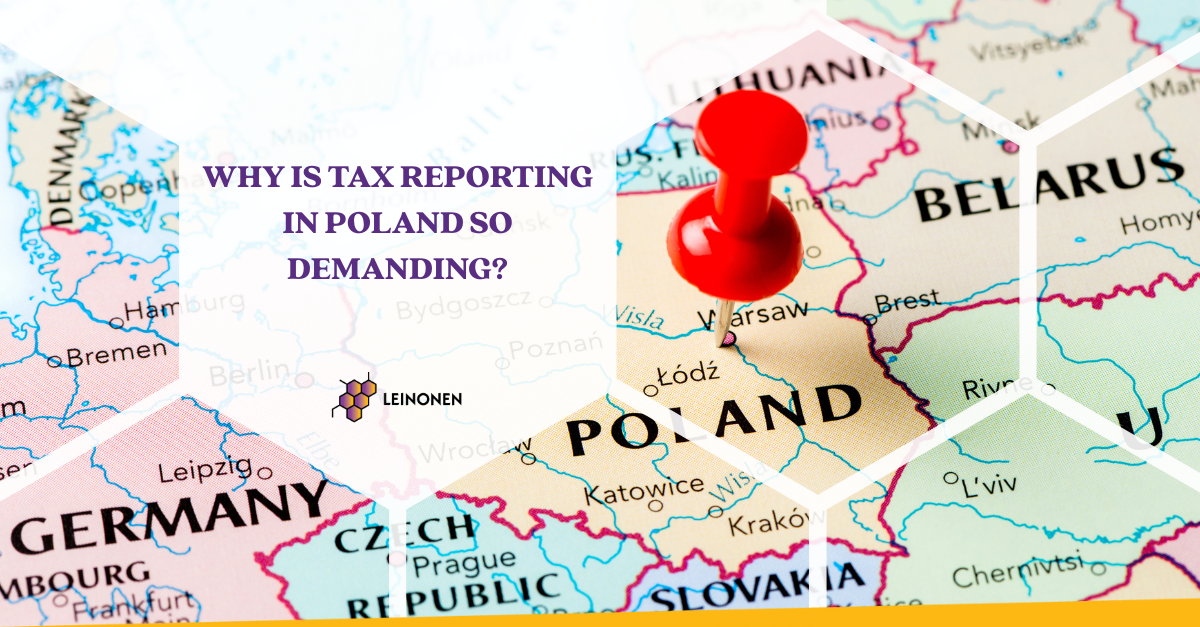Poland is recognized as one of the European Union’s most challenging environments for tax reporting and compliance. This reputation is rooted in a unique combination of regulatory complexity, rapid digitalization, and a strong governmental drive to combat tax fraud and increase transparency. Here’s a comprehensive look at why Polish tax reporting stands out—and what it means for businesses operating in the country.
High Complexity of Tax Regulations
Poland ranks among the top in Europe for tax system complexity. According to PwC and the European Parliament, Polish entrepreneurs spend an average of 334 hours annually on tax formalities, second only to Bulgaria. This is due to frequent legislative changes, numerous interpretative uncertainties, and complex documentation requirements.
Digitalization and Structured Reporting Mandates
Poland has aggressively digitized its tax system to combat fraud and improve transparency. Key initiatives include:
- SAF-T (Standard Audit File for Tax): Introduced in 2016, requiring structured XML submissions for VAT and other tax data.
- KSeF (Krajowy System e-Faktur): A mandatory e-invoicing system rolling out in phases through 2026, enforcing real-time invoice registration and eliminating manual edits.
- JPK CIT: Structured corporate income tax reporting starting in 2026, enabling system-to-system audits and cross-checking with other tax files.
These systems require companies to maintain highly accurate and standardized data, often necessitating software upgrades, staff training, and external consulting.
Strict Compliance and Audit Environment
Polish tax authorities conduct millions of “tax checks” annually—quick, informal audits that supplement traditional tax inspections. Businesses must:
- Submit multiple SAF-T files on request within 7 days
- Use Polish National Bank exchange rates
- Ensure invoice formats and dates comply with Polish definitions
Failure to comply can result in fines, delayed refunds, or audit triggers.
VAT Gap Reduction Strategy
Poland has made significant progress in reducing its VAT gap (the difference between expected and collected VAT), outperforming larger economies like France and Germany. This success is partly due to mandatory digital reporting, real-time transaction monitoring, and whitelist requirements for bank accounts over 50,000 PLN.
International Transparency Obligations
Poland has adopted EU directives like DAC7 and Directive 2021/2101, requiring:
- Disclosure of income tax paid in other countries
- Reporting by digital platforms and multinational enterprises
These add layers of compliance for international companies operating in Poland.
Operational and Financial Impact on Businesses
- Operational Burden: Companies must adapt systems and workflows to meet structured reporting formats.
- Cost: Tax compliance costs in Poland are among the highest in the EU, averaging 2.4% of turnover for CIT obligations.
- Risk Management: Non-compliance can lead to penalties, reputational damage, and audit exposure.
The “Tax Rollercoaster” Metaphor
Polish accountants and tax advisors often refer to the environment as a “tax rollercoaster,” reflecting the unpredictability of regulatory changes, sudden reforms, interpretative complexity, and the emotional burden of compliance risks. Frequent legislative changes and complex mechanisms like “Pay & Refund” for withholding tax add to the challenge.
Conclusion
Tax reporting in Poland is one of the most complex and technologically advanced in Europe. Businesses must invest in robust systems, stay informed about frequent regulatory changes, and be prepared for rigorous audits. While these requirements increase operational burdens and costs, they also contribute to greater transparency and reduced tax fraud, positioning Poland as a leader in EU tax compliance.





